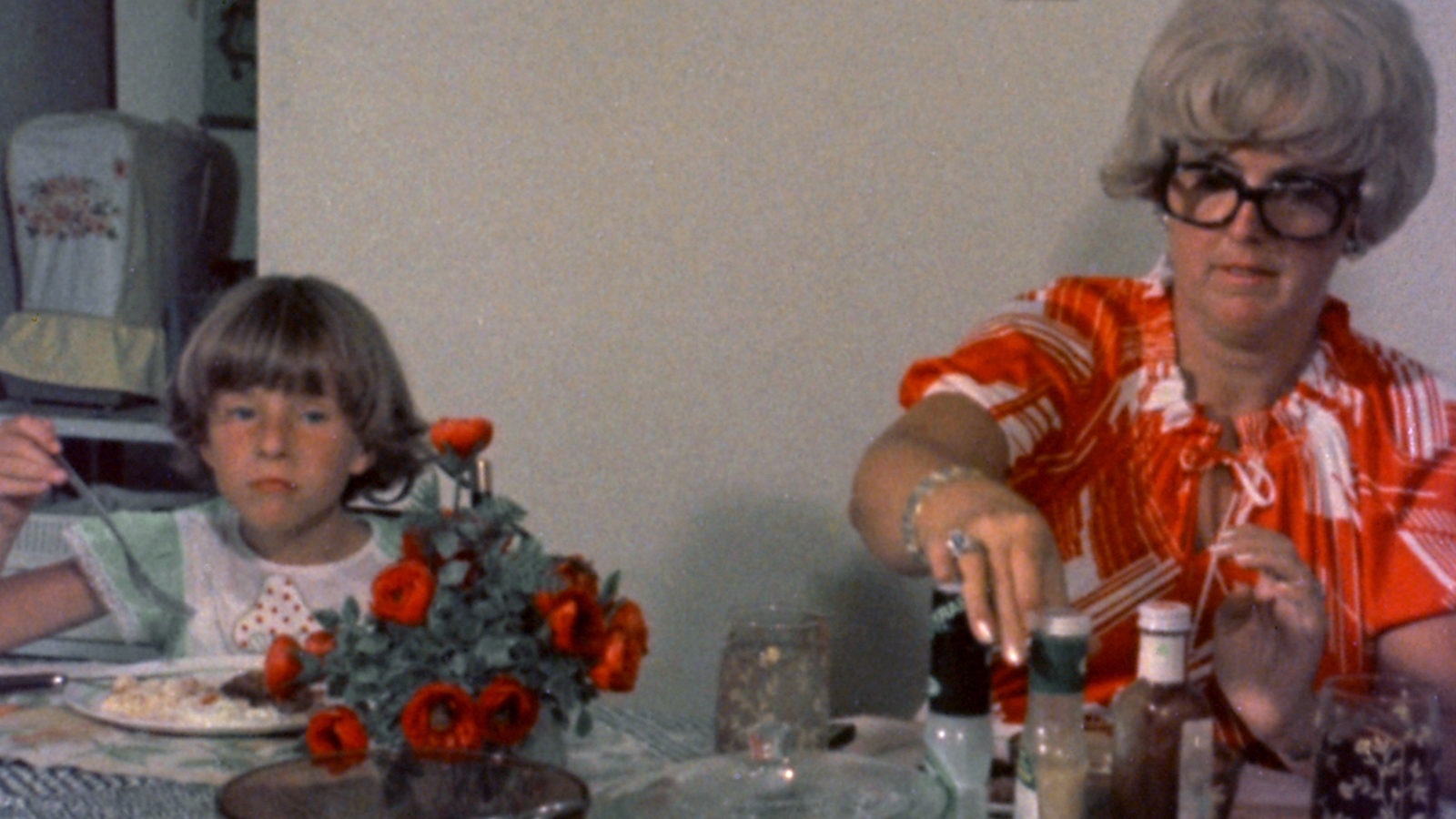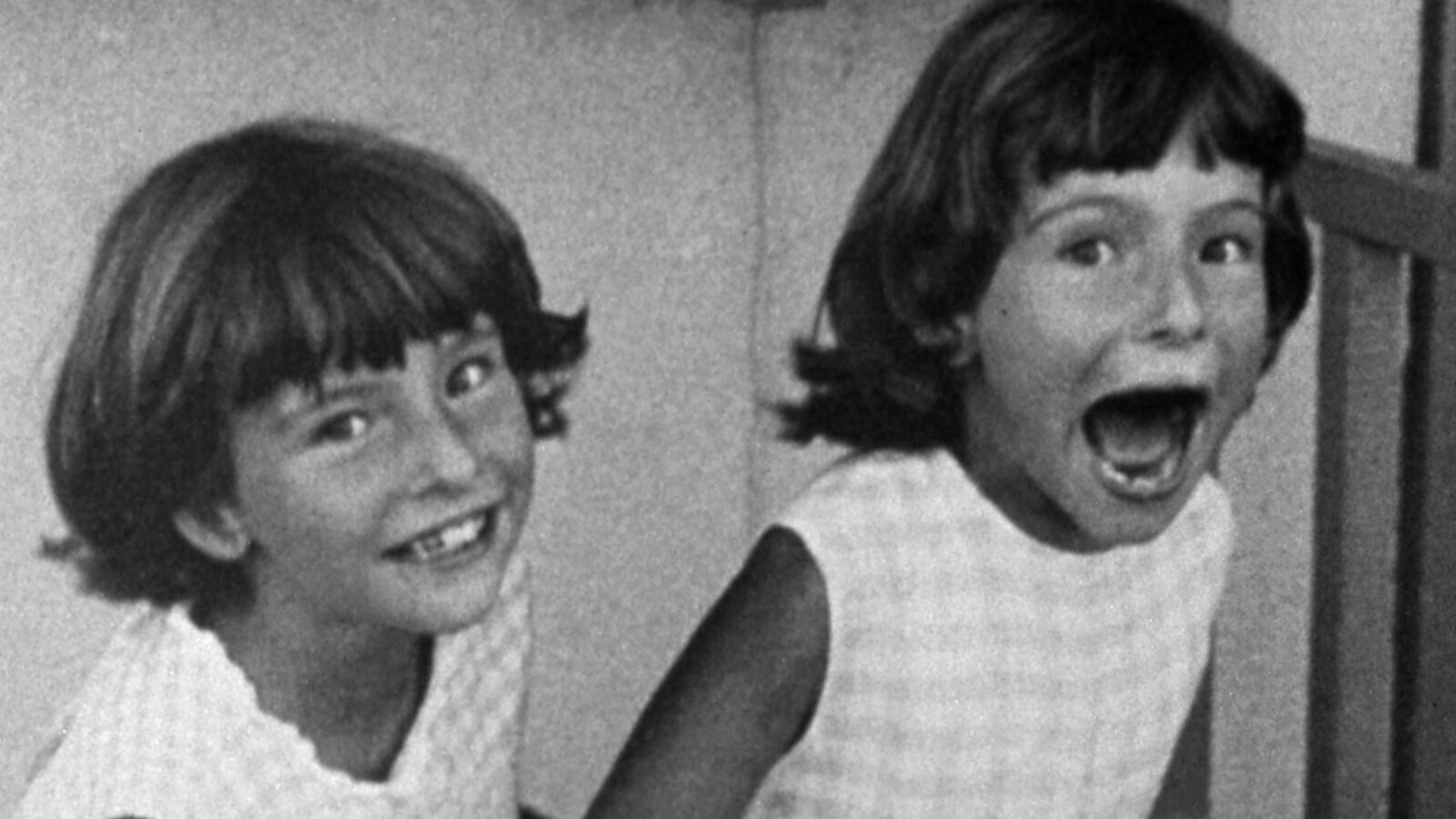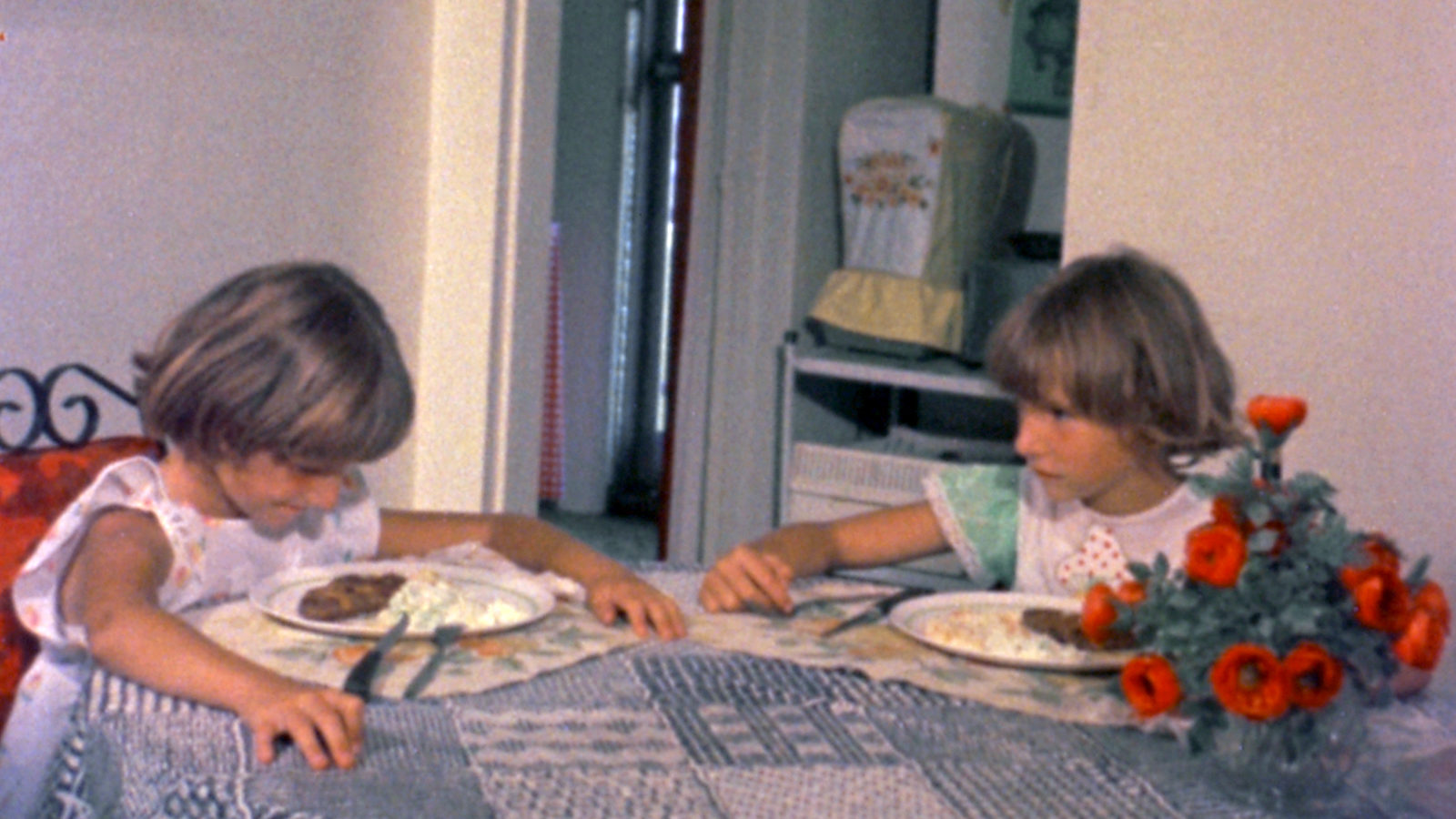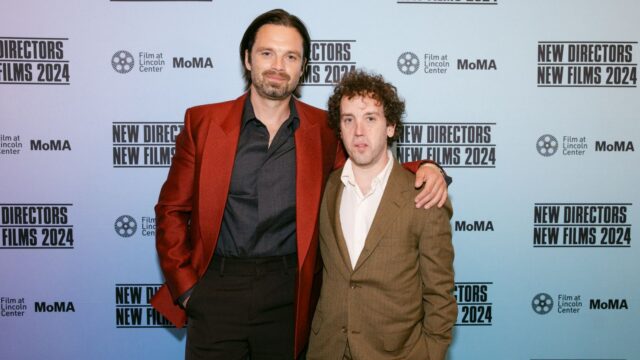Poto and Cabengo
J.P. Gorin’s name is assured a lasting place in film history as one half of the Dziga Vertov Group (the other half being Jean-Luc Godard), known for Marxist, Brechtian exercises in political cinema. Gorin then moved to San Diego, where he fell deeply under the influence of critic and painter Manny Farber and embarked on a sporadic but remarkable solo film career. Inspired by a news item about twin girls, Grace and Virginia Kennedy, believed to be communicating in a language of their own invention, the utterly beguiling documentary feature Poto and Cabengo also marked the first in an informal Gorin trilogy on private, closed communities nestled amidst the placid landscape of Southern California. Gorin attempts to unravel the mystery of the Kennedy twins while casting his amused yet penetrating gaze on the family’s lean economic situation and the mass-media cult intent on exploiting their story. The result is a small masterpiece about the mysteries of language and the hardscrabble realities of life on the margins of the American middle class.









